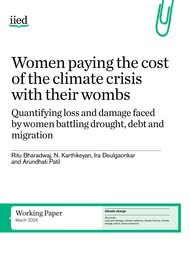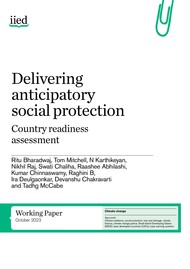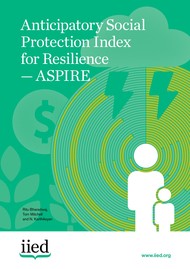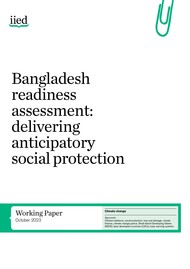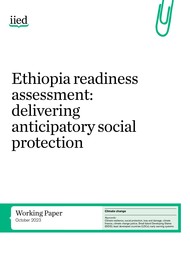Malawi readiness assessment: delivering anticipatory social protection
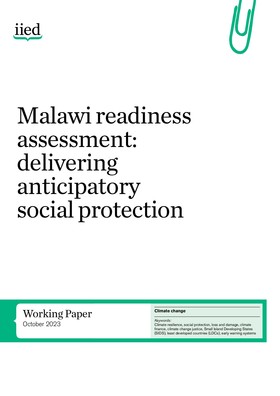
This study uses the ASPIRE tool to evaluate the readiness and effectiveness of social protection systems in Malawi, identifying gaps and opportunities to improve anticipatory measures and climate resilience. The analysis shows that Malawi's National Social Support Programme II (MNSSP II) aims to provide a comprehensive social protection framework, targeting vulnerable groups like women, children and the elderly. It is designed to be flexible and responsive to life-cycle needs and various shocks, including climate events. Despite these ambitions, the policy faces significant challenges, such as funding limitations, external dependency, and gaps in targeting beneficiaries effectively. Mechanisms like the Universal Beneficiary Registry and annual assessments by the Malawi Vulnerability Assessment Committee have been instituted, but they fall short of capturing the very poor people and marginalised categories.
In terms of actual assistance, MNSSP II offers a variety of supports, including income, food, and healthcare, but its financial sustainability is compromised due to heavy reliance on external donors. Pilot initiatives around anticipatory risk financing and disaster risk financing are promising but have yet to be fully institutionalised. Moreover, although the policy has made efforts to incorporate technology and data-driven methods, it faces issues like limited scalability, data access challenges, and cybersecurity threats.
Cite this publication
Available at https://www.iied.org/21931iied

